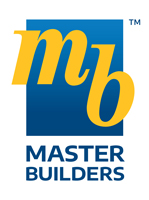Commonly used Terminology in the Building Industry
Build Taupō is here to help! Here are a few explanations of common Building Industry terms you may be wanting more information about.
BUILDING CONTRACT
A Building Contract is a formal and legally binding agreement between the client and your builder that;
- 1. We will build your home to the standard of inclusion and within the scope of service at the agreed price.
- 2. That you will reimburse us in accordance with the structure of payments.
Building Contacts are designed to protect both parties. Build Taupō uses the Registered Master Builder Contract, which is Nationally recognised.
FIXED PRICE CONTRACT
‘Fixed price’ contracts predetermine the total cost, so you are not caught by surprise. Ensuring your builder offers a fixed price contract is essential to ensure you stay within your budget. You must always understand the “Inclusions & Exclusions” with this fixed price (see further below)
INCLUSIONS
There is nothing like getting to the end of your build and realising your carpet is not included!
Inclusions are a detailed list of every item that will be in your home and included in your price – make sure you have a clear understanding of what each item is and what level of spec it is. If you miss something at the beginning, it can cost you down the track.
Build Taupō offers a comprehensive, easy to read proposal with each step of the project broken down and includes model numbers of appliances, so you know exactly what is included!
EXCLUSIONS
These are the items NOT included in your contract. Make sure these are clear and detailed, and if you are comparing two builders prices, make sure these lists match!
VARIATIONS
Building is a creative process, and we understand there may be changes that occur during the build.
These are called Variations or Change orders. But these need to be correctly documented and signed off always before any work is altered. This is extremely important when costs are involved and making sure you as a client know what the additional price or credit will be BEFORE proceeding
PRIME COST (PC)
(PC Sum, Provisional Cost or Estimated Cost Prime Sum Definition)
Prime Cost Sums are defined items that will be parts of the Works but at the time of entering into this Building Contract:
- 1. The price for that part of the materials or fittings is uncertain;
- 2. The materials or fittings to be used are uncertain;
- 3. The price for that part of the Works has not been finalised between the parties;
- 4. The extent of that part of the Works is outside the control of the parties;
- 5. The extent of that part of the Works is unknown;
- 6. Any combination of the above.
At Build Taupō, we make sure these are kept to an absolute minimum. In our pricing for new builds, the only Prime costs you will find will be Earthworks & Drainage, which is due to unknown underground conditions.
BUILDING CODE
The Building Code is contained in regulations under the Building Act 2004. The Act governs the building sector and sets out the rules for constructing, altering, demolition, and maintaining new and existing buildings in New Zealand. All building work in New Zealand must comply with the Building Code.
This ensures buildings are safe, healthy and durable for everyone who may use them. All Build Taupō homes are built to meet or exceed the requirements of the Building Code.
EARTHWORKS
Earthworks is a term used to cover any work required to be undertaken in preparing a section for the building of a new home.
The amount of required Earthworks varies from home to home due to the unknowns under the ground, and this is a prime cost.
SUBCONTRACTORS or SUBBIES
A subcontractor is a company or person who is hired by a general contractor (or prime contractor, or main contractor) to perform a specific task as part of the overall project and is normally paid for services provided to the project by the originating general contractor.
Build Taupō use local trusted subcontractors to complete specialised areas or your project, such as Plumbers, Gasfitters, and Painters, to ensure a quality finish – However, we never subcontract our Carpentry work out to another building company. Our trained team performs this to ensure our high standards are always met.
GEOTECH REPORT
It is now a requirement of the Local Council that a Geotechnical Report or Soil Report be provided for a building development as part of the Building Consent process. It is common for the report to be referred to as simply the Geotech report.
This requirement exists to ensure that the development proceeds without the risk of foundation problems or stability concerns. A Geotechnical Investigation Report also provides the structural engineer or architect with information to help in the design process.
It is a straightforward process and Build Taupō can save you time and organise this for you and help you understand the results & any remedial work if needed.
GUARANTEE
A Building Guarantee is a comprehensive insurance policy that a building company provides to the owner/buyer. It offers peace of mind that the building has been constructed to a standard set by the warranty provider.
A code compliance certificate is a formal statement issued under section 95 of the Building Act 2004, that building work carried out under a building consent complies with that building consent.
When undertaking a final inspection for a code compliance certificate, a building consent authority needs to ensure the building consent documents accurately reflect the work on the site.



